Glasgow's Egyptian Halls among Europe's most endangered buildings
- Published
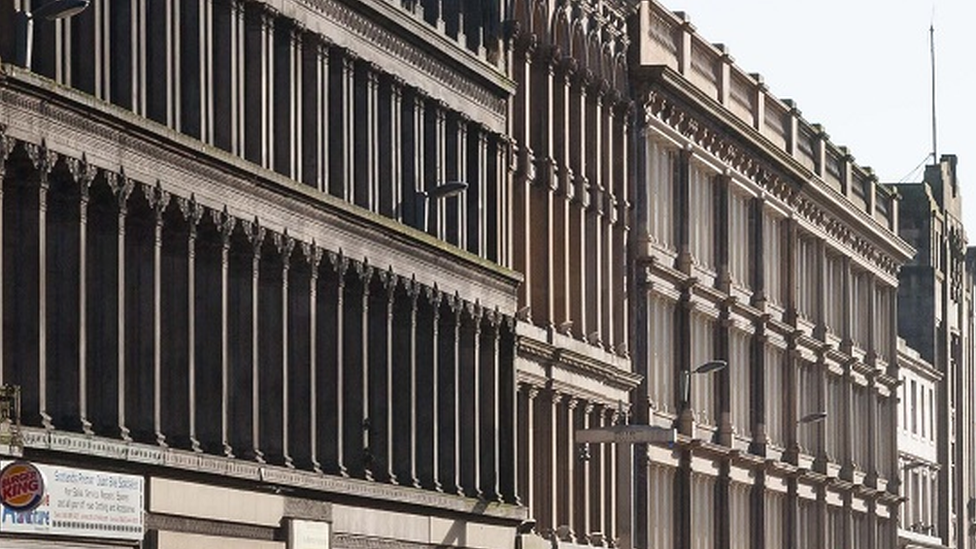
The Egyptian Halls are a classic example of Alexander 'Greek' Thomson's work
A building in Glasgow has been named among Europe's most at risk amid fears it could soon be beyond repair.
The Egyptian Halls on Union St have been vacant for 40 years and covered in scaffolding for a decade.
Designed by Alexander "Greek" Thomson, the building has been shortlisted for a European-wide programme aimed at saving important architecture.
If selected an expert group will visit Glasgow to identify ways to save the building and bring it back into use.
Built in 1873 as a commercial premises for an iron manufacturer, the Egyptian Halls is considered one of Thomson's masterpieces.
It has been named among Europe's most important, endangered buildings by the Europa Nostra, a pan-European heritage project.
But campaigners have warned the opportunity to save the structure could soon close.
They have until March to make the case for its restoration, when the shortlist will be cut from 14 to seven.
If chosen for the programme, experts in preservation and finance will come to Glasgow to visit the A-listed building, to help the owner and Glasgow City Council find a sustainable way to bring the building back into use.
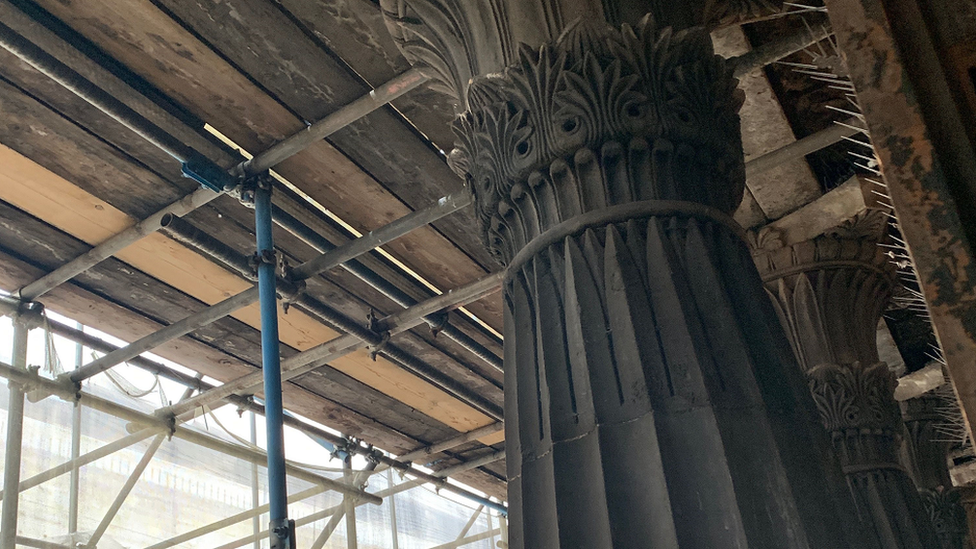
An external column, covered by scaffolding and a fake facade for a decade
Efforts to save the building have been ongoing since its upper floors were vacated in the late 20th century, including proposals to develop the property into a hotel, museum, art gallery or school.
Glasgow City Council said it has worked with the various owners since the building was vacated, including current owner Derek Souter, from Dundee.
A spokesman for Mr Souter's company said he was pleased the building had been shortlisted and hoped legacy issues could be resolved "so an extraordinary solution can be facilitated to save an extraordinary building".
A spokesman for the council said the building was "undoubtedly an important part of both Glasgow's cultural heritage and its urban fabric".
He added: "For many years, council officers have worked with the owners of the Egyptian Halls to support their hopes of developing the building appropriately in order that it could be enjoyed by future generations. We look forward to the presentation of proposals which could achieve this."

Who was Alexander Thomson?
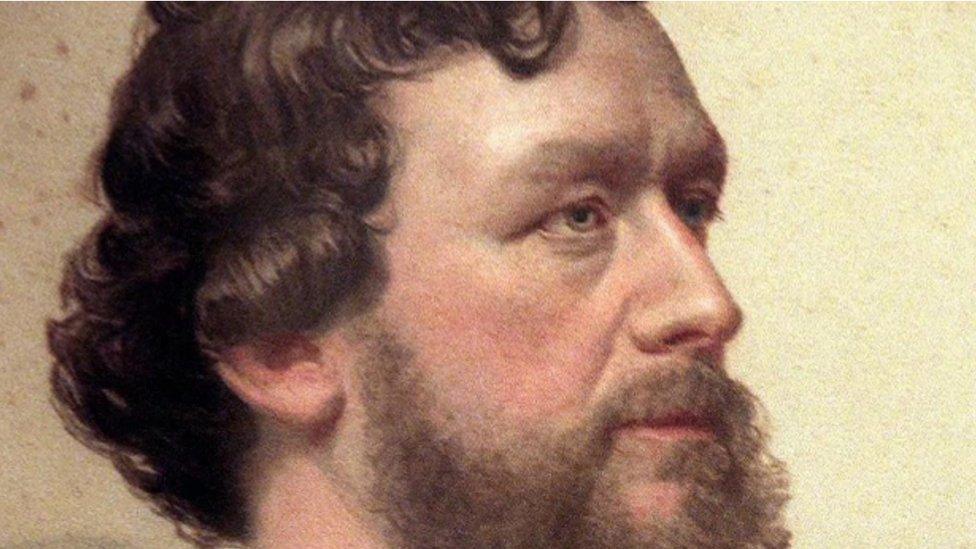
Alexander Greek Thomson is considered one of Scotland's finest architects
Alexander Thomson, the architect who designed the Egyptian Halls, was born in 1817 in the Stirlingshire village of Balfron.
Brought up as a strict Presbyterian, he acquired the nickname "Greek" despite rarely leaving Glasgow and never setting foot abroad.
Thomson was concerned with the problems of urban living at a time when Glasgow was one of the most densely-populated cities in Europe.
Thomson only became "Greek" in the mid-1850s, in his late-30s, when he decided to adopt the Classical Greek style as his mode of working.
Before that he had designed many gothic, baronial, and Italianate villas along the Firth of Clyde in places such as Cove and Kilcreggan.
He embraced the Greek style at a time when it was going out of fashion, especially in England where a Gothic Revival was taking place.

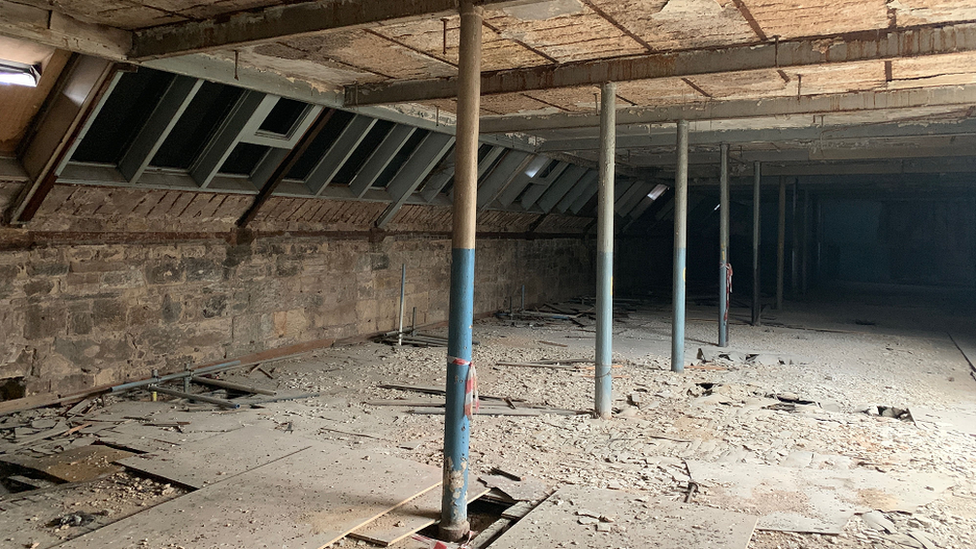
The building's interior is in a state of disrepair
'A work of imaginative genius'
Niall Murphy, deputy director of Glasgow City Heritage Trust, said the Egyptian Halls were Thomson's "finest commercial masterpiece and of equivalent status to Charles Rennie Mackintosh's Glasgow School of Art".
He added: "The exotic trabeated Union Street elevation of the building is the culminating achievement of Thomson's quest to explore 'the mysterious power of the horizontal element'.
"As such, the A-listed Egyptian Halls are a work of imaginative genius by one of the greatest minds in Scottish architecture, and of great importance to the architectural, urban and social history of Glasgow. Its loss would immensely impoverish the city."
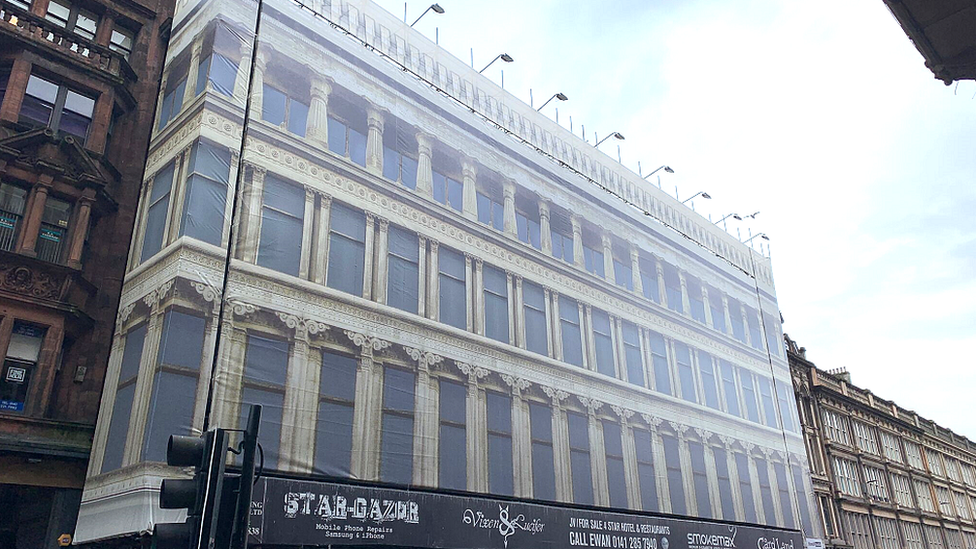
A fake facade covers the scaffolding which has been in front of the building for a decade
A charity dedicated to protecting the works of the Scottish architect recently held a competition for proposals to develop the Egyptian Halls and bring them into use.
A spokesperson for the Alexander Thomson Society, which is involved in the campaign to save the building, said an online petition had received over 700 responses in 24 hours.
"The owners and the council have highlighted the financial and ownership issues that have plagued this building for decades," the spokesperson said.
"Being selected for the seven Most Endangered programme would see Europa Nostra send delegations of impartial experts on funding and strategy who could prove vital in finally resolving the impasse which has led to this masterpiece lying empty for the last 40 years."